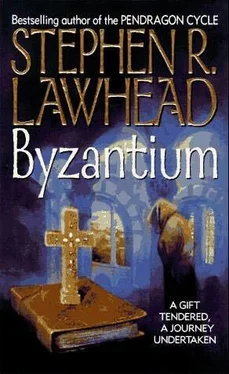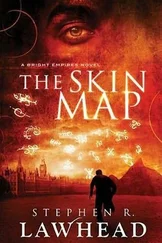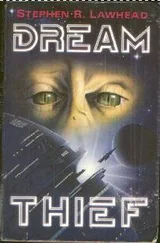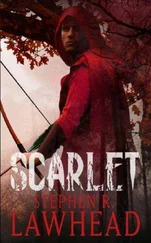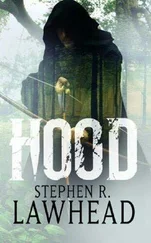Stephen Lawhead - Byzantium
Здесь есть возможность читать онлайн «Stephen Lawhead - Byzantium» весь текст электронной книги совершенно бесплатно (целиком полную версию без сокращений). В некоторых случаях можно слушать аудио, скачать через торрент в формате fb2 и присутствует краткое содержание. Жанр: Исторические приключения, на английском языке. Описание произведения, (предисловие) а так же отзывы посетителей доступны на портале библиотеки ЛибКат.
- Название:Byzantium
- Автор:
- Жанр:
- Год:неизвестен
- ISBN:нет данных
- Рейтинг книги:5 / 5. Голосов: 1
-
Избранное:Добавить в избранное
- Отзывы:
-
Ваша оценка:
- 100
- 1
- 2
- 3
- 4
- 5
Byzantium: краткое содержание, описание и аннотация
Предлагаем к чтению аннотацию, описание, краткое содержание или предисловие (зависит от того, что написал сам автор книги «Byzantium»). Если вы не нашли необходимую информацию о книге — напишите в комментариях, мы постараемся отыскать её.
Byzantium — читать онлайн бесплатно полную книгу (весь текст) целиком
Ниже представлен текст книги, разбитый по страницам. Система сохранения места последней прочитанной страницы, позволяет с удобством читать онлайн бесплатно книгу «Byzantium», без необходимости каждый раз заново искать на чём Вы остановились. Поставьте закладку, и сможете в любой момент перейти на страницу, на которой закончили чтение.
Интервал:
Закладка:
We bade farewell to Pietro and all his men in turn, and then climbed up the twisting, narrow path to the clifftop where we were greeted by a small crowd of folk who had seen the ship and gathered in anticipation of news and trade.
The head man pushed his way forward to welcome us. An expression of honest astonishment appeared on his face when he realized who it was that stood before him. "Hoo!" he cried. "Look at you now! Look at you! Returned from foreign lands as hale as the day you left!" Glancing around quickly, he searched among us and then scanned the cliff trail and wharf below. "Michael bless me, where are the others? Where are all the rest? Are they coming after?"
"Greetings, Ladra," Brynach answered. "Yes, we have returned-we four alone. Alas, no more will be coming after."
This caused a ripple of comment through the crowd. Ladra looked from one to the other of us, and said, "Well, well, however it may be, welcome home. You have much to tell, and we would hear it gladly."
"That, I fear, must wait a little," Brynach replied. "Our first duty is to make our return known to our brothers at the abbey. The day is good and we are well rested; I think we must make for Kells straightaway."
Ladra's face fell, and the people groaned. Pointing to the wharf below, I said, "There stands a man with ready silver. Would you keep him standing on the wharf until he grows weary and sails away to find more willing traders elsewhere?"
This caused a mild tumult as the people hastened down to meet Pietro and make him properly welcome. The resulting commotion allowed us to slip through the crowd and proceed on our way unhindered by hospitality, however well-meaning. Shouldering our various bundles, we started off.
Oh, it was fine to feel the soft turf beneath my feet and smell the cool, damp mistful air. Blissful green of every shade met the gaze at every turn, a soothing balm for eyes grown accustomed to the dry, colourless rock-bound wastes of the east. All that day I walked in a wonder of recollection: each hill and every tree seemed a miracle created anew to refresh the soul and delight the senses.
To be in Eire again, and know the place as for the first time-there is no finer thing.
We walked until midday and rested by the river, then walked again until nightfall took the path from us. Though we had no food with us, we did not count it a hardship, for to sleep once more under the summer stars and breath the still, soft fragrant air of that peaceful land was sustenance enough.
Rising before dawn, we proceeded on our way eagerly, and with such vigour and pace that by eventide we came in sight of Cenannus na Rig. We paused at the last hillside to look across the valley at the stone-encircled settlement, too overcome with the upsurge of mingled feelings to speak: the happiness of safe return entwining sorrow for our dear brothers who did not now stand beside us.
Then, even as we stood looking on, there came the clear, clean sound of the abbey bell tolling vespers. At the third stroke, Dugal was striding down the hill, and by the fifth he was running. Down we flew, racing as fast as we could go; I ran behind Dugal, and Brynach and Ddewi followed hard behind. We reached the abbey gate out of breath and weary, but thankful to be so.
"Home!" Dugal cried, his face glowing with the exertion and jubilation. "Aidan, man, we are home!"
His cry brought the porter from his hut. He took one look at us and dashed for his bell and began ringing it to announce our arrival. "God bless you, brothers! Welcome!" he shouted, trying to make himself heard above the bell.
"Paulinus!" hollered Dugal jovially. "Leave off your bell ringing, we cannot hear a thing!"
Brother Paulinus came and stood before us, eager in the twilight, bursting with questions and welcome. From the chapel monks were already streaming towards us, and in less than the space of three heartbeats we were surrounded on all sides by our good brothers, all shouting glad welcome and slapping our backs and praising God and all the company of heaven for our safe return.
Then, even then-in the midst of all the merriment-I felt once more the vile serpent rear its head in my soul. Alas, it had not died with Nikos, it had only slept. To see all those dear brothers, their faces so joyful, and to hear them praise for our keeping the same God who had given so many others over to death made my spirit writhe within me. Even as I stood with the cries of happiness resounding in my ears, I could feel the poison seeping from my wounded soul.
The pain was almost past enduring. It was all I could do to remain among them, smiling, laughing, accepting their good wishes-when all I wanted was escape. I saw Dugal go down on his knees to beg forgiveness of Libir for pushing him down on the rocks-I turned away as the bitter bile rose in my throat.
Then Abbot Fraoch was standing before us, his arms outspread in welcome, acclaiming our arrival. Behind him, grinning with pleasure at the sight of us, stood Ruadh, the abbey secnab and my own dear confessor. "Behold!" Fraoch said, his broken voice raised in a happy rasp of salutation. "The wayfarers have returned! The pilgrimage is completed. Let the Lord Christ be praised for his faithful and steadfast protection!"
There followed a burst of renewed acclaim, which the good abbot allowed to continue a while, before raising his hands for silence. "Brothers, it is right to welcome our kinsmen with praise and thanksgiving," he said. "However, I see that only four have returned where thirteen set out, and it would be a shameful thing not to ask after those whose absence demands explanation."
Brynach stepped forward and related the unhappy tidings that we were indeed the only survivors of the pilgrimage and that all the rest were dead, having exchanged the white martyrdom for that of the red. This brought murmurs of sorrow and lament from the throng-especially for the deceased monks who had set out from our own community.
Bryn then motioned for Dugal to come forward. The big monk shouldered his way to the fore and took the carefully wrapped bundle from off his back and placed it on the ground at Abbot Fraoch's feet.
"Aidan here," Dugal said with a nod in my direction, "was not content to allow our blessed Bishop Cadoc's mortal bones to remain among the godless in pagan lands. We have brought the bishop's relics home to be buried with all honour and respect."
The abbot regarded the bundled bones sorrowfully. "Ah, well," he said. "Ah, mo croi, it is a grief to me, and to us all. Christ have mercy." Raising his eyes once more, he said, "Thank you, Brother Dugal. Thank you, Brother Aidan. It was good of you to be so mindful of the sympathies of others. We are, all of us, beholden to your tender thoughtfulness."
Ha! I thought, anger flaring up within me. Shall I tell you how he died? Shall I tell you how this godly man's life was cruelly torn from him and his body thrown into the refuse pit with no more tender thought than yesterday's joint of mutton? Shall I tell you that the only reason his bones were retrieved at all was so that a band of godless barbarians could salvage their pilfered treasure? Shall I tell you the truth of God's steadfast protection?
I said none of these things, of course, but merely acknowledged the abbot's sentiments with a reverent nod.
Abbot Fraoch then said, "Vespers have been rung, and the prayers begun. Let us go to the chapel and give thanks to God for the pilgrims' safe return."
Everyone began talking at once, pelting us with questions and clamouring to be heard; we were swept up by the well-wishing throng and carried to the doors of the chapel. There I was to endure a time of prayer more onerous to me than a hundred days of slavery in the caliph's mines. At least when it was finally over the abbot allowed us to retreat to the cells which had been prepared for us.
Читать дальшеИнтервал:
Закладка:
Похожие книги на «Byzantium»
Представляем Вашему вниманию похожие книги на «Byzantium» списком для выбора. Мы отобрали схожую по названию и смыслу литературу в надежде предоставить читателям больше вариантов отыскать новые, интересные, ещё непрочитанные произведения.
Обсуждение, отзывы о книге «Byzantium» и просто собственные мнения читателей. Оставьте ваши комментарии, напишите, что Вы думаете о произведении, его смысле или главных героях. Укажите что конкретно понравилось, а что нет, и почему Вы так считаете.
